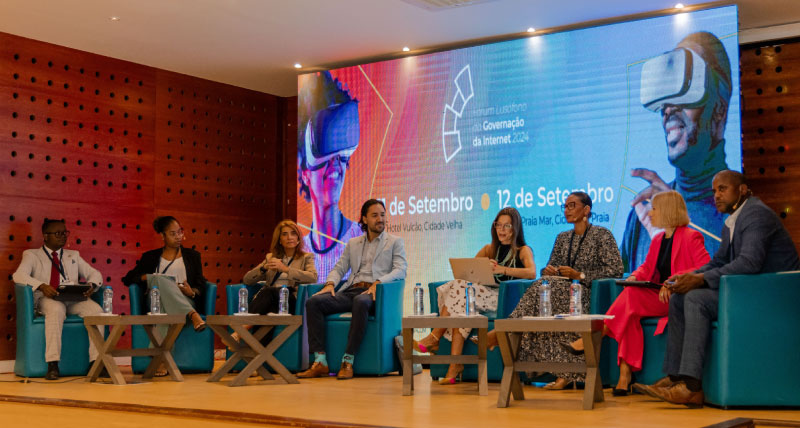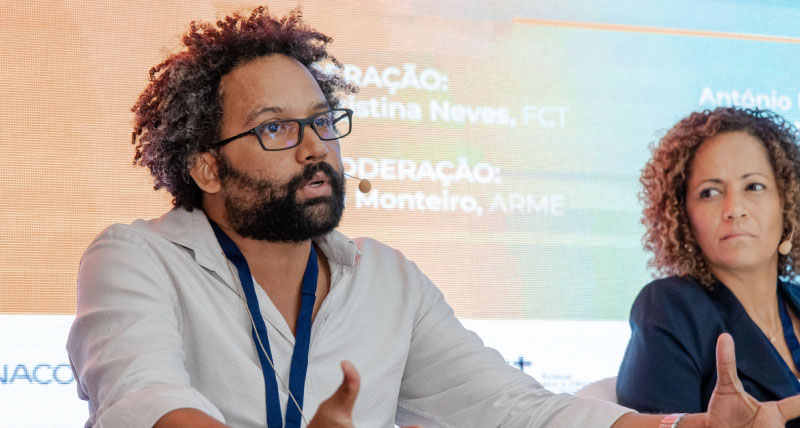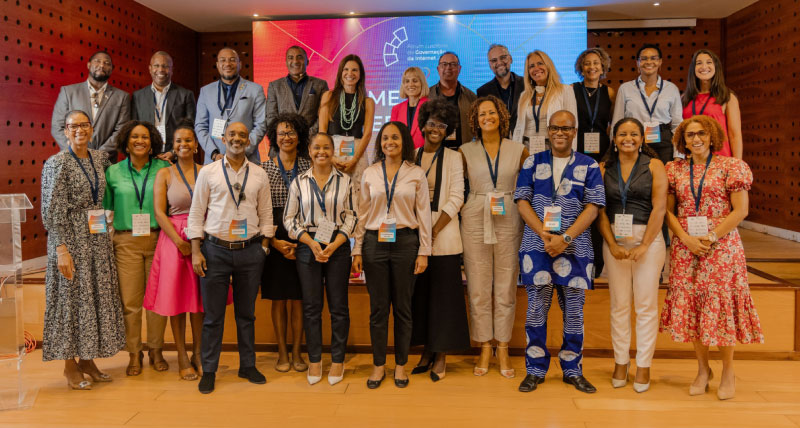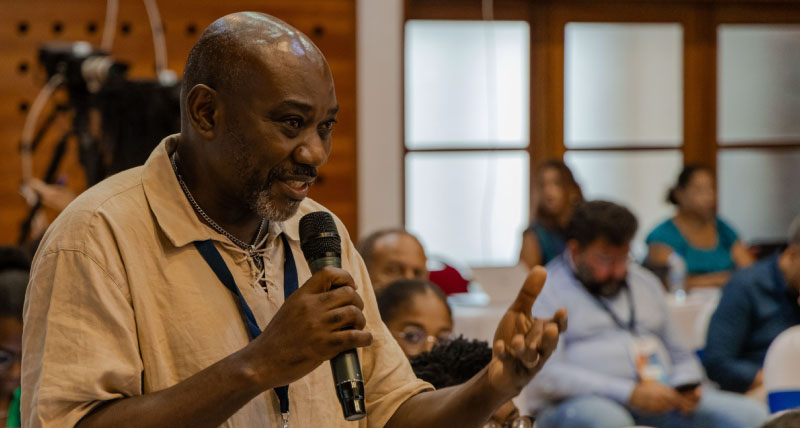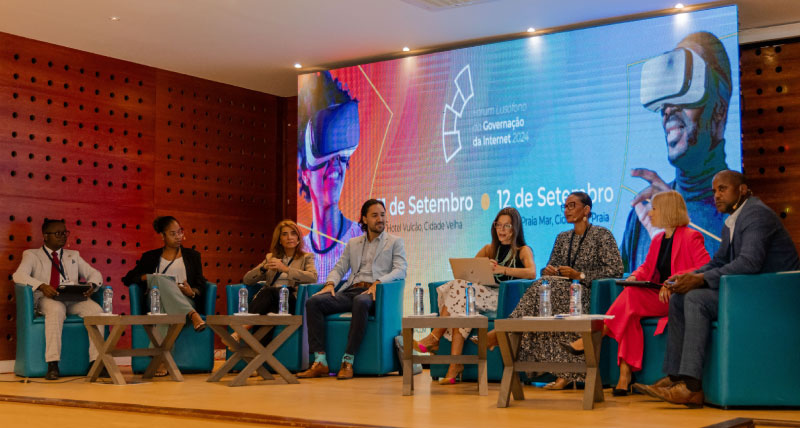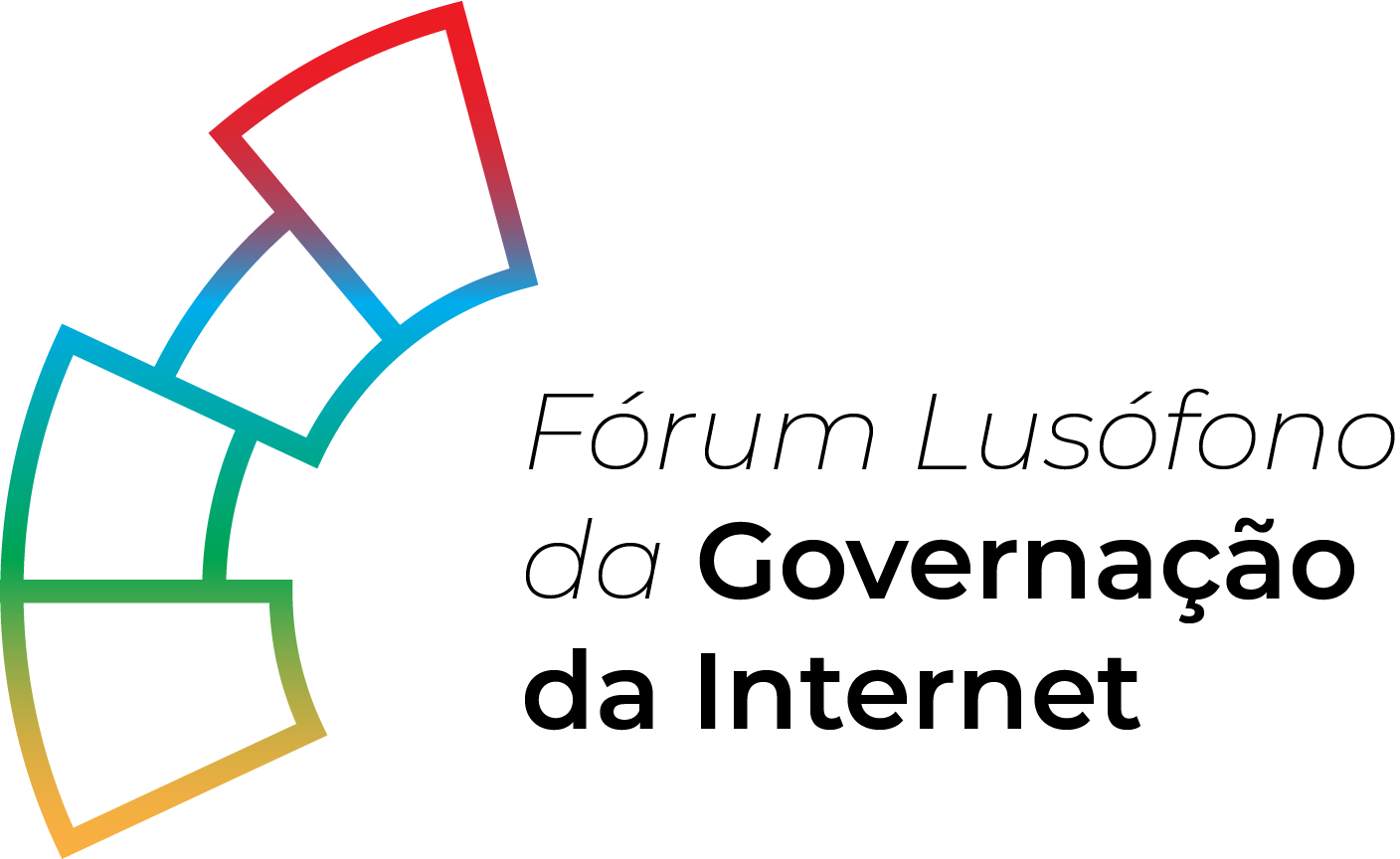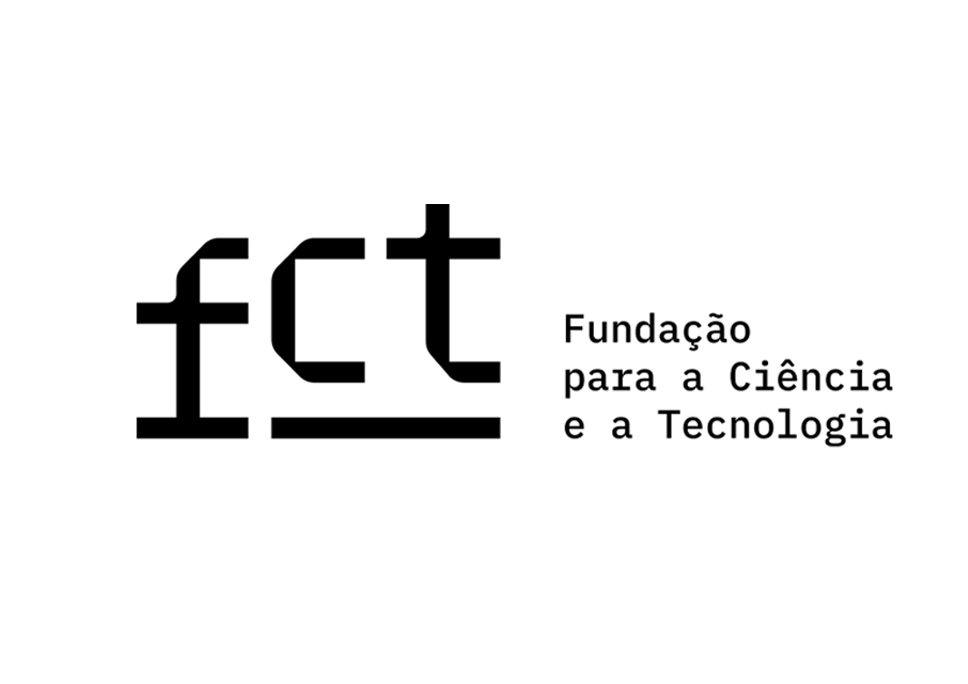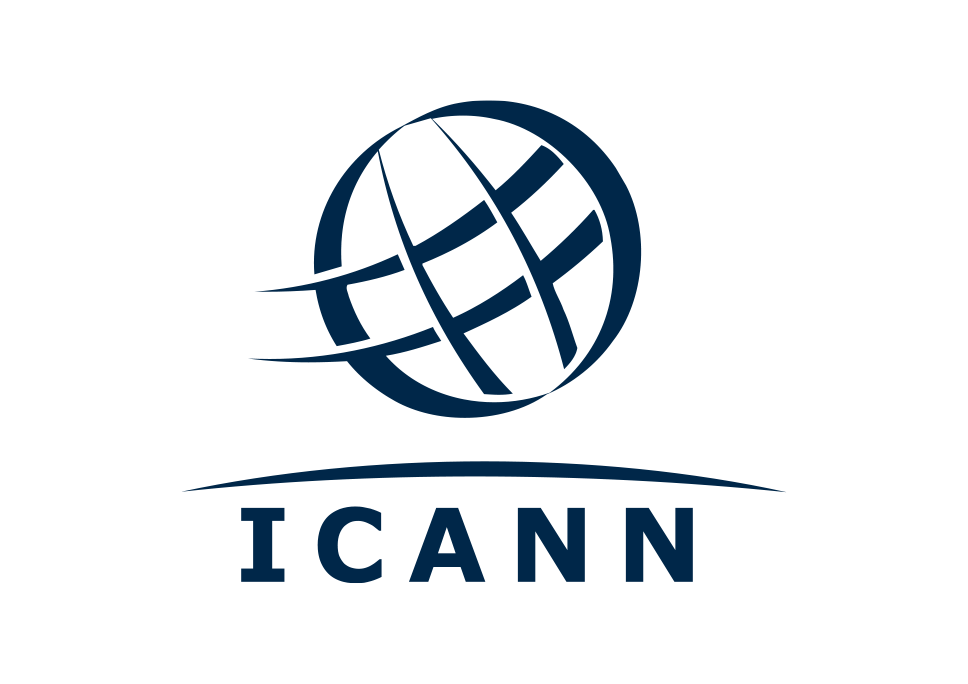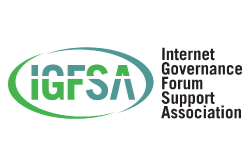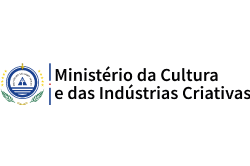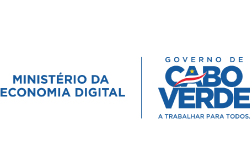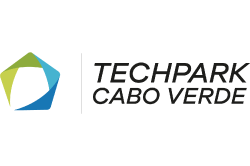Event report available
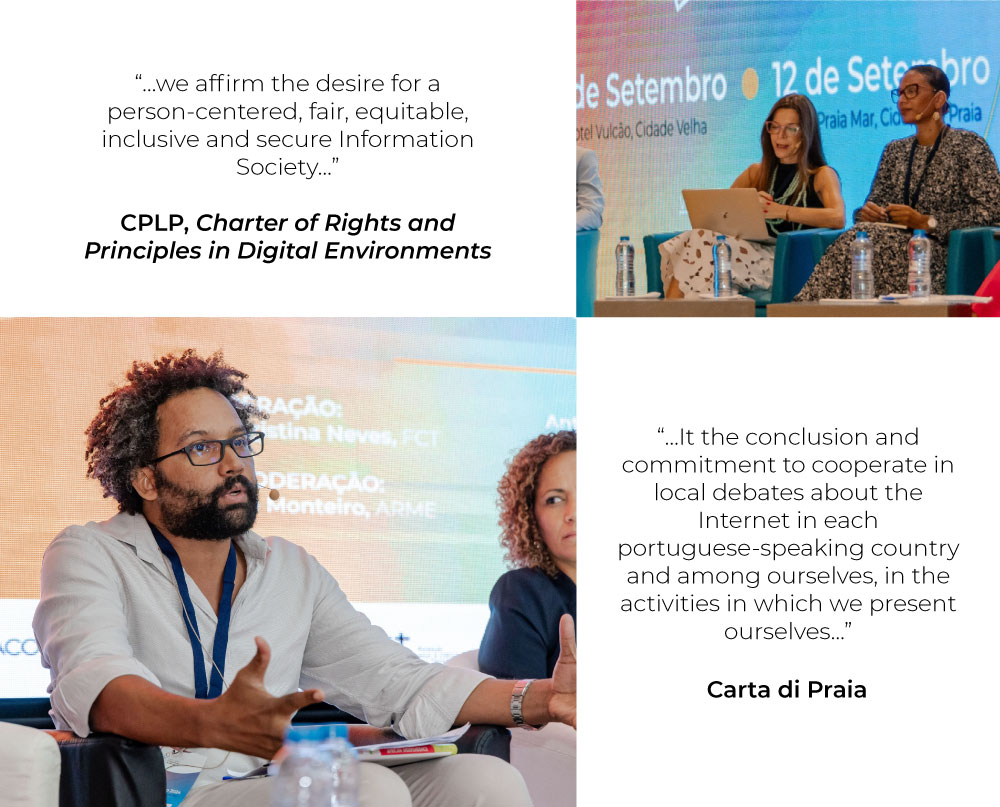
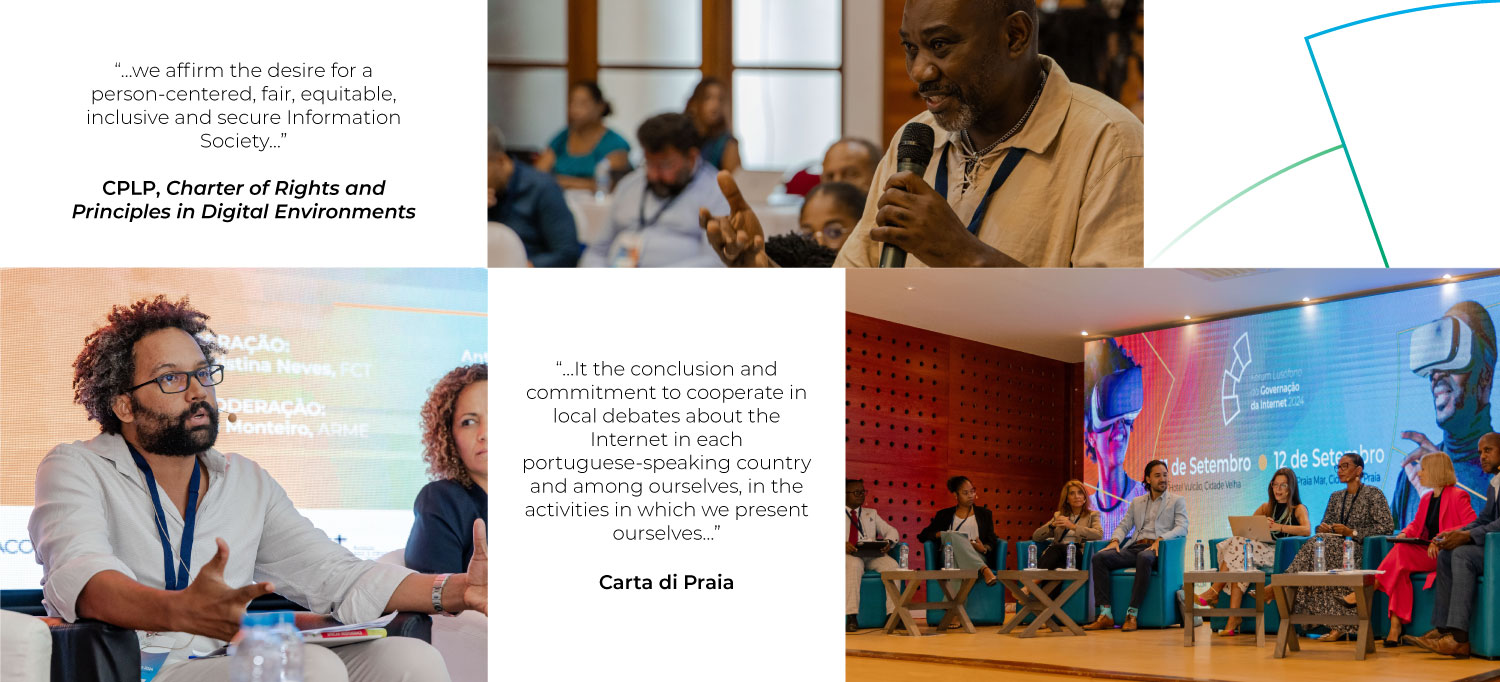
2nd Lusophone Internet Governance Forum
On the 11th and 12th of September, the 2nd Lusophone Community Internet Governance Forum took place at the Hotel Vulcão (Cidade Velha) and the Hotel Praia Mar (Cidade da Praia) in Cape Verde. Having talked and debated about the multiple interactions of theportuguese language in the developments, uses and governance of the Internet, this year specifically dedicating a lot of time to reflecting on the impacts, challenges for the linguistic and cultural diversity of lusophony.
Carta di Praia
Read the document approved by the participants of the 2nd Lusophone Internet Governance Forum with the principles for continuing these annual initiative. The next Forum, in 2025, will be held in Mozambique.
REPORT
PROGRAM
September 11th
Block 1- artificial intelligence and Portuguese language
- Olavo Avelino Garcia Correia (Vice Prime Minister Cape Verde)
- Leonilde Santos (ARME – Cape Verde)
- Lourino Chemane (INTIC – Mozambique)
- Luisa Ribeiro Lopes (.PT – Portugal)
- Rafael Evangelista (CGI.br – Brazil)
This panel aims to discuss the opportunities and challenges of representing the Portuguese language in AI models based on three main guiding questions. The question “why?” seeks to discuss the importance of the presence of our language in AI. The question “what?” talks about what needs to be done to increase the representation of the Portuguese language in models, such as the creation and sharing of datasets in Portuguese and the development of specific language models. The third question, “how?”, proposes a reflection on the policies and initiatives necessary to implement these strategies, aiming to ensure that the Portuguese language is well represented in the advancement of AI, promoting digital inclusion and the preservation of linguistic diversity. Furthermore, the discussion will seek to highlight the importance of multidisciplinary teams and human and specialized review processes on the results of these models, considering the multilingualism of Portuguese-speaking countries and their social realities.
MODERATION: Lourino Chemane (INTIC – Mozambique)
CO-MODERATION: Rafael Evangelista (CGI.br – Brazil)
- Arlinda Peixoto (Pagali – Cape Verde)
- Diogo Cortiz (NIC.br – Brazil)
- Leida Correia e Silva (Cape Verde)
- Manuel da Costa Cabral (ANACOM – Portugal)
- Tiago Timponi Torrent (UFJF – Brazil)
This panel aims to examine issues of ethics and biases in AI, focusing on the linguistic and cultural diversity of Lusophony. We will address how AI systems can perpetuate cultural and linguistic prejudices in variants of Portuguese, considering aspects of vulnerable communities and populations in Portuguese-speaking countries. The objective of the panel is to debate AI development that represents the diversity of Lusophony. The discussion also proposes an analysis of how the dominant languages and cultures present in commercial models can influence a cultural flattening effect on the Portuguese-speaking community. In this sense, the panel plays a fundamental role in problematizing aspects of sociocultural impacts on the development and implementation of AI systems. Added to this, this debate expands to paths and strategies in the face of the risks and discriminatory impacts arising from hegemonic models of technological development.
MODERATION: Ana Cristina Neves (FCT- Portugal)
CO-MODERATION: Carine Monteiro (ARME – Cape Verde)
- António Branco (Universidade de Lisboa – Portugal)
- Cláudia Mendes da Silva (Women in Tech PT – Portugal)
- João Laurentino Costa Pinho Neves (IILP)
- Pedro Matos (Universidade de Santiago – Cape Verde)
- Rodolfo Avelino (CGI.br – Brazil)
- Sandra Ávila (Unicamp – Brazil)
This panel aims to explore the impacts of AI on societies in Portuguese-speaking countries. This discussion involves debates about transformations in the job market, in the area of education, in the area of copyright and intellectual property, in the production and creation of content, seeking to identify changes in the professional fields and skills demanded by AI. It also encompasses issues such as emerging business opportunities and the potential for innovation in various sectors, as well as the role of AI in scientific and technological advancement, highlighting promising areas for research and development. The panel promotes reflection on strategies so that Portuguese-speaking countries can avail and develop benefits through AI, encouraging inclusive economic and social development. Furthermore, the panel will seek to highlight regulatory issues and discussions on how the development and use of AI must follow ethical principles and parameters, guided by non-discrimination and to prevent the worsening of social inequalities and disparities in access to knowledge in the context of Portuguese-speaking countries.
MODERATION: Ramon Costa (NIC.br – Brazil)
- Ana Paula Laborinho (OEI – Portugal)
- Celestino Barros (Cape Verde University – Cape Verde)
- Gilvan Muller Oliveira (Chair at UNESCO in Language Policies for Multilingualism (UCLPM/UFSC – Brazil)
- Henrique Faulhaber (CGI.br – Brazil)
- Lourino Chemane (INTIC – Mozambique)
September 12th: morning
Block 2- digital inclusion, sustainability and emerging technologies
Despite advances in expanding Internet access around the world, digital gaps persist, and include not only issues related to universal connectivity – access for all – but also quality use – the so-called meaningful connectivity – for a safe, satisfactory experience and at an affordable cost, considering multilingualism for the viability of access, provision and dissemination of content on the Internet. In particular, peripheral, rural and remote areas face specific barriers to connectivity in terms of infrastructure and economic viability, since, globally, 50% of rural populations are Internet users, compared to 80% in urban areas (International Telecommunications Union, 2023). Furthermore, social markers such as gender, class, race and ethnicity must also be observed when tackling digital inequalities, as it is precisely racialized women from lower classes who live in rural areas who have higher rates of exclusion. In this context, this panel aims to debate the different challenges faced by Portuguese-speaking countries in reducing the digital divide, as well as exploring the strategies and initiatives adopted for the inclusion of rural areas and less favored communities.
MODERATION: Marta Dias (.PT – Portugal)
CO-MODERATION: Mozart Tenório (CGI.br – Brazil)
- João da Luz Ramos (Ministry of Digital Economy – Cape Verde)
- Leonilde Santos (ARME – Cape Verde)
- Lucilene Gomes (Santiago's University – Cape Verde)
- Luisa Ribeiro Lopes (.PT – Portugal)
- Sandra Maximiano (ANACOM – Portugal)
- Osvaldo Cossa (INCM – Mozambique)
The increasing dissemination of emerging technologies such as AI, 5G and the Internet of Things (IoT) in Portuguese-speaking countries and their adoption in different sectors of society offer development potential for areas such as health, education and agriculture. Such uses, however, also imply economic, environmental and social impacts that are not yet fully understood. If, on the one hand, they can contribute to achieving the Sustainable Development Goals (SDGs), on the other, it is known that the development and use of these technologies imply a drastic growth in energy consumption due to the exponential increase in demands for the technologies themselves. emerging. This panel aims to debate the use of emerging technologies in Portuguese-speaking countries in light of their positive and negative impacts on the environment, and to stimulate reflections on strategies and initiatives that promote their sustainable use.
MODERATION: Luisa Ribeiro Lopes (.PT – Portugal)
CO-MODERATION: Ana Lima (ARME – Cape Verde)
- Bianca Kremer (CGI.br – Brazil)
- Bas’ilele Malomalo (UNILAB – Brazil)
- Filinto Omar (Guiné-Biossau)
- Cláudia Mendes da Silva (Women in Tech PT – Portugal)
September 12th: afternoon
Block 3- global Internet governance ecosystem in Portuguese-speaking countries
The area of Internet governance has undergone profound institutional transformations at international, local and regional levels, imposing challenges and new demands for cooperation between Portuguese-speaking countries. Considering the wide economic, political, social and cultural diversity of the Portuguese-speaking community, how is it possible to bring countries closer together regarding Internet governance and multisectoralism? What are your common interests and how can they be articulated? How can we better prepare Portuguese-speaking countries to participate in processes such as the Global Digital Compact, Netmundial+10, the Future Summit and WSIS +20? This panel aims to encourage the discussion of strategies that promote integration, cooperation, continuous dialogue and exchange of experiences of the Portuguese-speaking community to strengthen their representations and multilingualism in different Internet governance forums, whether local, regional or international.
MODERATION: Andreia Brito (.PT – Portugal)
CO-MODERATION: João Tomar (ARME – Cape Verde)
- Ana Cristina Neves (FCT- Portugal)
- Andrea Becalli (ICANN)
- Eugénio Alberto Macumbe (INTIC – Mozambique)
- Everton T. Rodrigues (NIC.br – Brazil)
- Milton Cabral (Cabo Verde Digital – Cape Verde)
The panel will address possible paths and existing experiences with the aim of discussing training initiatives by and for Portuguese speakers to, in an inclusive and diverse way, promote qualification and participation in Internet governance spaces. We will analyze practical experiences such as Internet governance schools, fellowships and programs for young people, in addition to debating existing limits and new possibilities, with a focus on the Lusophone scenario, such as the creation of a Lusophone Internet governance school that brings together Lusophone countries.
MODERATION: Erick Sotelo (ARME – Cape Verde)
- Darlyn Estrela (Cabo Verde Digital – Cape Verde)
- Laura Pereira (Brazil)
- Luiza Mesquita (NIC.br – Brazil)
- Rutte Cardoso Andrade (UNILAB – Brazil)
- Sérgio Cossa (Mozambique)
- Lourenço Lopes – Deputy Secretary of State to the Prime Minister of Cape Verde
- João Tomar (ARME)
- Marta Dias (.PT – Portugal)
- Sandra Maximiano (ANACOM – Portugal)
- Ana Cristina Neves (FCT- Portugal)
- Lourino Chemane (INTIC – Mozambique)
- Rafael Evangelista (CGI.br – Brazil)
